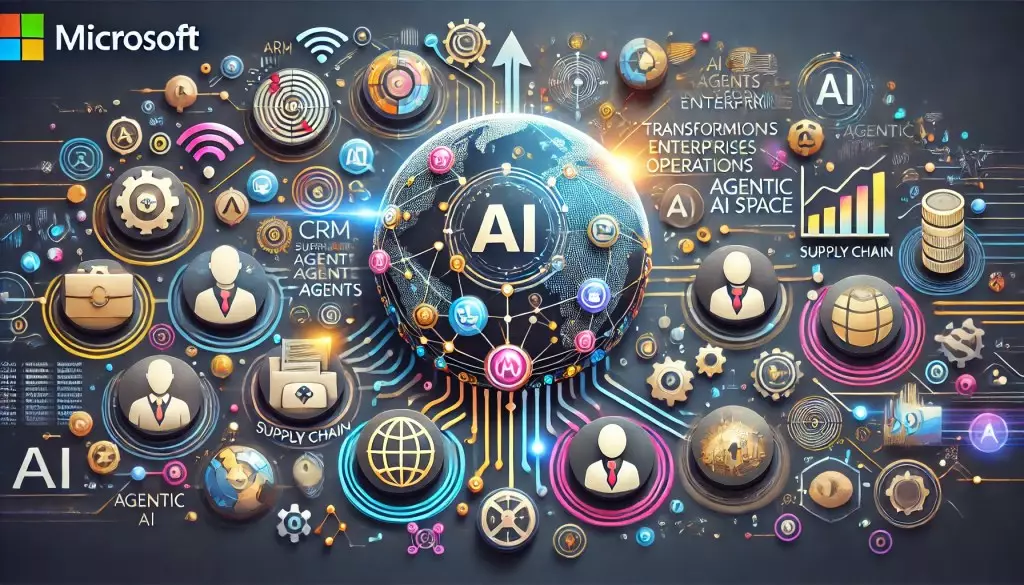At the recently concluded Ignite 2024 conference, Microsoft unveiled a groundbreaking initiative that promises to revolutionize enterprise operations—the introduction of ten autonomous AI agents tailored for business applications. This monumental announcement positions Microsoft not just as a participant in the AI race, but as a frontrunner in the development of fully functional AI solutions aimed at enhancing organizational productivity. With these agents, Microsoft claims to have achieved something that many competitors have yet to realize: a robust and expansive AI agent ecosystem ready for enterprise deployment.
The newly introduced AI agents are meticulously engineered to streamline fundamental enterprise processes, which include Customer Relationship Management (CRM), supply chain logistics, and financial reconciliation. Unlike other AI offerings from companies such as Salesforce and ServiceNow, which often focus on narrow applications, Microsoft’s approach encompasses a well-rounded suite of tools designed to enhance various operational aspects within a business. This broad capability makes the agents not only practical but essential for organizations looking to harness AI efficiently.
With the integration of 1,400 third-party connectors and support for over 1,800 large language models, Microsoft’s AI agents are uniquely positioned within the market. This compatibility fosters significant customization opportunities, allowing enterprises tailored solutions that address their specific operational challenges. Importantly, the speed of adoption is equally striking; Microsoft reports that 100,000 organizations are already engaging with these agents, demonstrating a doubling of deployment rates in the last quarter alone. These figures starkly contrast the often limited adoption numbers seen with competitors, highlighting Microsoft’s strong foothold in enterprise AI.
One of the standout features of Microsoft’s AI agents is their pre-configured nature, which allows organizations to implement them quickly without needing extensive customization typically required with traditional tools. Enterprises can deploy these agents to facilitate processes such as qualifying sales leads or optimizing supply flows with minimal setup time. The advantage is clear: businesses can quickly adapt to changing demands and operating environments, utilizing AI-driven solutions designed to efficiently navigate complex workflows.
This strategic cornerstone not only saves time but also reduces the resource investment that businesses would typically allocate to developing and customizing AI solutions. Consequently, enterprises can focus more on leveraging the AI capabilities to drive outcomes rather than getting bogged down in the technicalities of deployment.
Microsoft’s ecosystem of productivity applications, combined with its extensive customer base, differentiates its offering from that of rivals like Google and Amazon Web Services (AWS). By embedding these AI agents into their existing frameworks, Microsoft is well-positioned to deliver comprehensive, enterprise-grade solutions at an unmatched scale. This advantageous position allows Microsoft to redefine market dynamics, posing challenges to nimble startups that once specialized in isolated niches of enterprise functionality.
Furthermore, as Microsoft transitions towards an innovative pricing strategy from a “per token” to a “per message” model—and ultimately towards “per outcome” value— the implications for the value of large language models (LLMs) are profound. This shift indicates that businesses may be prioritizing the results delivered by AI over the models themselves, a transformative move that has the potential to reshape how enterprises interact with AI technologies.
Despite these accomplishments, it would be naïve to dismiss the intense competition that Microsoft faces. Firms like Google and AWS are relentless in their pursuit of AI leadership and are now actively developing their own autonomous solutions. The landscape is ever-evolving, and while Microsoft currently enjoys a lead, this advantage may not persist indefinitely.
Microsoft’s announcement at Ignite 2024 heralds a significant shift in how enterprises can leverage AI for their operations. The introduction of these ten autonomous AI agents marks a transition from experimental applications to fully realized products that can drastically improve efficiency and productivity. As the wave of adoption continues, the implications of this innovation will likely shape the future of enterprise operations—an exciting prospect for business leaders and decision-makers in all industries.

